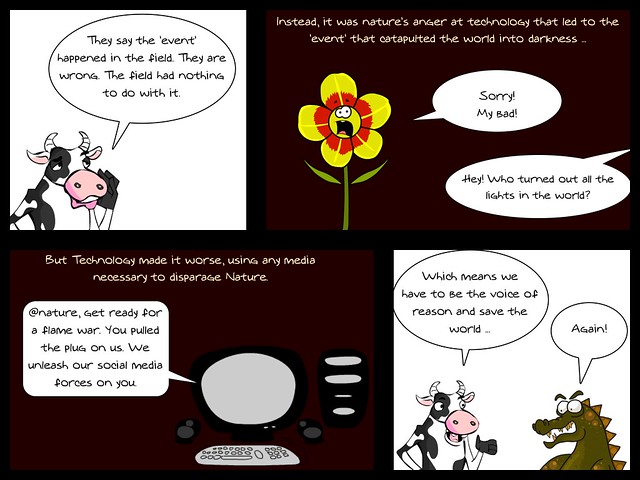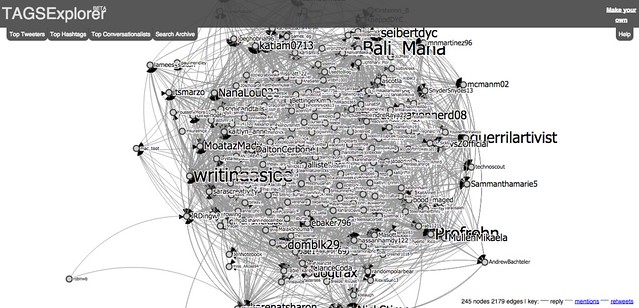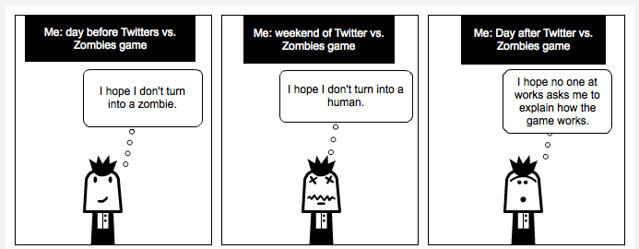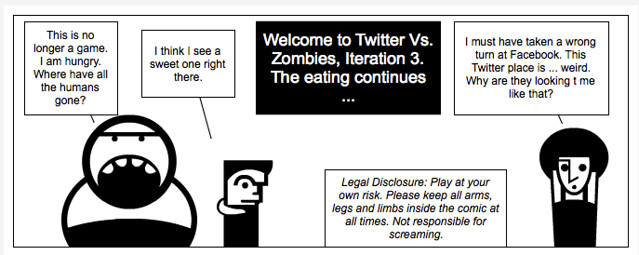The #TvsZ game ended last night, after a weekend of furious activity on all the teams involved to complete the final “mission” that pulled together all sorts of strands of stories, media and collaborative principles. Unfortunately, I was out of the house for much of the afternoon and left the curating of my team’s mission to others. I did create a “myth” story for our team (#DragonBovines) as a comic, in hopes that I could at least contribute something. Others wrote myth tweets, too.

But I continue to think about the take-aways from a social media game like #TvsZ and what literacies and skills come to the surface. These are merely my own reflection points:
- A game played in real time across a social media network like Twitter means that many players missed much of the unfolding of the game, and that’s OK. Unless you were jacked to your screen for 48 hours, elements of the game went by you or pieces got completely missed. Realizing that there is no way to know everything is not a weakness but a strength of the game (and thankfully, the administrators were around most of the time to clarify rules.)
- The need for collaboration and team-building trumped mostly everything else. This is built into the dynamics and flow of the game itself, as you begin by recruiting for a team and then work forward from there. Much of the play was recruiting, resisting and helping teammates as membership shifted across the board.
- Some literacies that I noticed: writing in short-form, collaborative story writing, media awareness and media creation, hyperlinks as text, collaborative practice, rules negotiations, remixing content, and other skills that I am still mulling over.
- You don’t quite realize the extend of connections until you get a glimpse of something like the Tagsexplorer that was set up for the game. Check it out. That’s when you get to pull back and glimpse some of the writing and connecting that was going on, as all of those strands reach out and represent connections. Pretty amazing. And the tool is perfect for getting a real idea of activity in a game like this, which can often feel fleeting in the moment.
I will be curious to see how the discussions unfold in the undergraduate classes that were playing the game across the world, and what the students saw in the game. One question should be: did playing TvsZ have value beyond just playing the game itself? What was learned about the self and about connected learning practices?
It may be a game, but TvsZ is always more than just a game.
Peace (in rest mode),
Kevin
PS – here is a collection of comics from our team, as curated by NanaLou.


